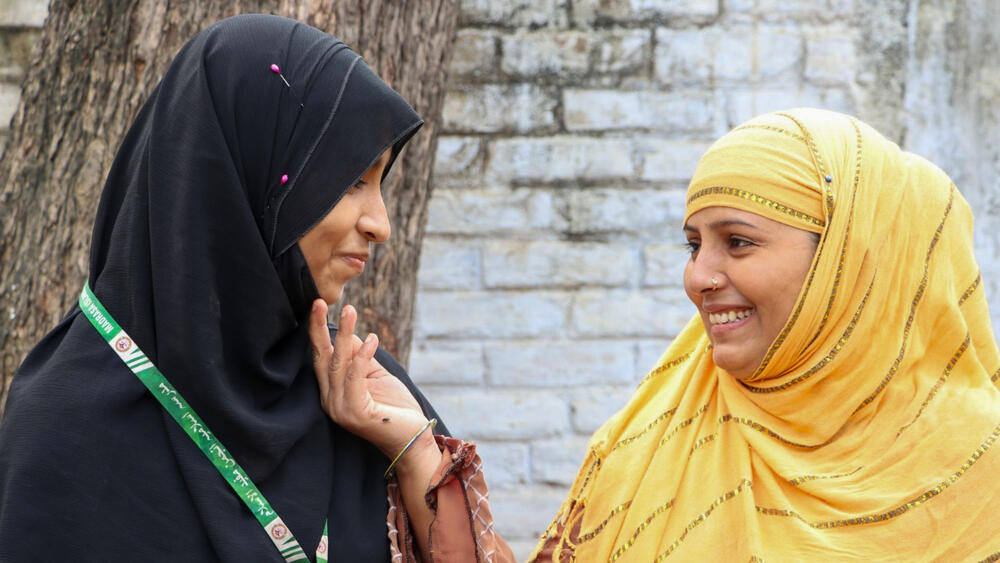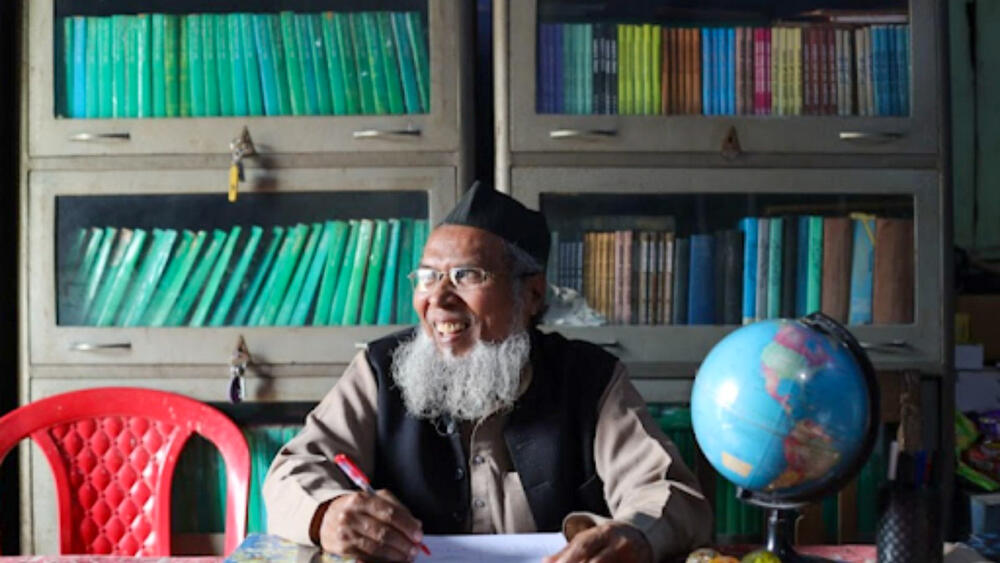News
Unleashing the potential of adolescent girls in India through life skills education
- 10 October 2024
News
PATNA SAHIB, India – The new Education Minister of Bihar was a 15-year-old girl. At least, that’s the role student Zohra Fatima played for a day during the youth parliament at her school, the Madrasa Islamia Anjuman Mufidul Islam in northeast India.
"The parliament helped me practice and develop skills that will be useful for my future," Zohra. told UNFPA, the United Nations sexual and reproductive health agency. “I want to serve my country as a lawyer – and then as a judge.”
Zohra is one of 250,000 students who have attended life skills education sessions under the Taalim-i-Naubalighan programme; Zohra’s lessons are at the Madrasa Islamia Anjuman Mufidul Islam. Most students are adolescent girls, whose aspirations the programme aims to foster and protect.
“After coming to the madrasa regularly, I realized that my dreams are equally important, and I have the choice to pursue them," Zohra said.
Transforming norms
“Adolescent girls have transformative potential – for themselves, their communities, and humanity as a whole,” said UNFPA Executive Director Dr. Natalia Kanem on the 2024 International Day of the Girl.
Yet around the world, adolescence represents a risky time for girls: an era of transition when threats of unintended pregnancy, intimate partner violence and harmful practices like child marriage loom large.
In Bihar, two in five girls marry before 18 – the legal minimum age – and more than one in ten adolescents aged 15 to 19 have begun childbearing, according to national data.
These challenges are driven by norms and practices fueled by gender inequity, which the Taalim-i-Naubalighan programme seeks to transform by dispelling myths and mediating discussions and lessons on topics such as gender, puberty and positive masculinity.
"They teach us how to manage our emotions," said Altamash, a young male student. "That's why I was able to help my sister, [who wanted] to continue her studies. When I understood her desire and how it would help her, I advocated for her to my father.”
“She is now going to complete her education, and I am so proud of her."
Change is good

Since the UNFPA-supported Taalim-i-Naubalighan programme launched in 2020, more than 250,000 students have attended essential life skills education sessions at 1,921 madrasas across Bihar state.
The programme’s impact has rippled out from its participants to their communities: Zohra, for instance, successfully convinced her sister to send her children to the madrasa for lessons.
And Ismul Haq Naumani, principal of the programme-affiliated Madrasa Munir-ul Islam in Nalanda, has brought his advocacy for adolescent education on relationships, gender equality and health to community meetings and mosque sermons. His mantra: “Change is good”.
Champions like Zohra and Mr. Naumani have helped assuage the concerns of some parents and teachers, initially anxious about stepping away from traditional curricula and the programme’s potential impact on religious and cultural values.
But the growth Taalim-i-Naubalighan has sparked in its attendees has impressed parents like Farhana Parveen. "I send [my daughter] to the madrasa so she can become independent in her thoughts and actions," Ms. Parveen, a former teacher, told UNFPA. “It is not about what I want for her; it’s about what she wants for herself.”
Her daughter Muskaan lights up when asked about her dream for the future: to become a banker.
“She can be anything she wants,” her mother said.
